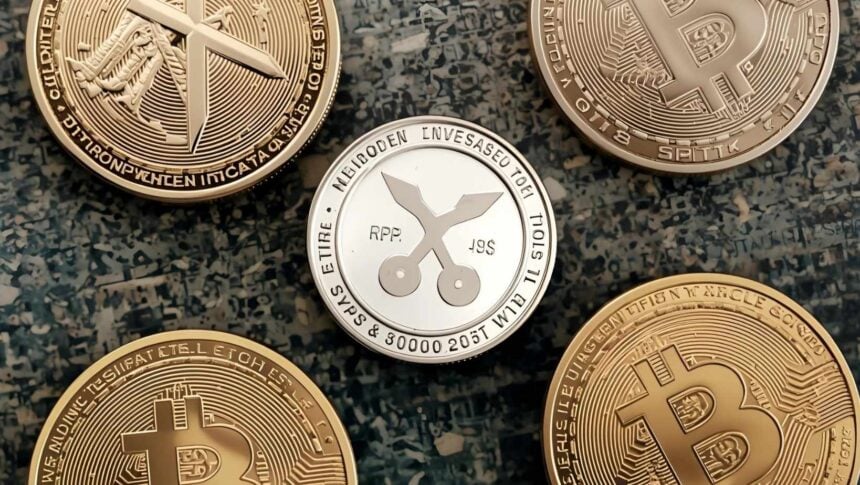U.S. crypto ETF hopefuls tied to XRP, Solana, Cardano, Dogecoin, and Litecoin were told to pull their exchange rule-change filings as the Securities and Exchange Commission shifts to a streamlined listing regime for commodity-based exchange-traded products.
The change follows the Commission’s approval of generic listing standards that allow national exchanges to list qualifying spot commodity products, including crypto asset ETPs, without a case-by-case review.
The SEC’s rule action, finalized in mid-September, lets NYSE Arca, Nasdaq, and Cboe BZX rely on standardized criteria instead of submitting individual 19b-4 proposals for each new crypto product.
In an order issued September 17, the Commission granted accelerated approval to the exchanges’ generic standards for Commodity-Based Trust Shares.
Commissioner statements published the same week underscore the policy pivot.
One statement noted that generic standards “allow exchanges to list” crypto commodity ETPs without prior Commission approval when conditions are met.
In the wake of that decision, the SEC has asked issuers to withdraw pending 19b-4s for spot products tied to several non-bitcoin tokens.
The agency’s rulemaking docket already shows multiple XRP proposals marked withdrawn as of September 26, including applications to list shares of XRP trusts on Cboe BZX.
A Cboe filing tied to a Solana trust also appears as withdrawn on that date. These entries point to an administrative clean-up of the old pathway rather than a rejection on the merits.
Under the generic standards, exchanges no longer need the SEC to sign off on each listing rule change for a qualifying crypto ETP.
Instead, timing will hinge on the effectiveness of the product’s registration statement, such as an S-1, and on whether the proposed fund meets the objective criteria set out in the exchanges’ rules.
Commissioner commentary makes clear that eliminating bespoke 19b-4 reviews is intended to reduce friction, though investor protections in disclosure and oversight still apply.
For investors, the immediate effect is a different clock: The 19b-4 process came with statutory deadlines that spaced out decisions over months. With those filings withdrawn, there is no longer a separate rule-change timer.
That can compress launch timelines for products that clear disclosure review, but it can also remove a predictable cadence for dates.
The SEC’s order approving the generic standards also signals that exchanges must publish required product information within days of a fund’s first trade, which could make initial disclosures more uniform across issuers.
The shift also raises practical considerations for issuers pursuing altcoin exposure. Meeting generic listing criteria is necessary but not sufficient.
Sponsors still need the SEC’s Division of Corporation Finance to declare the registration effective, and they must demonstrate robust custody, pricing, and market-surveillance arrangements that satisfy disclosure rules.
Those hurdles were central to the first generation of bitcoin and ether spot ETFs and are likely to feature prominently in any forthcoming products centered on XRP, Solana, Cardano, Dogecoin, or Litecoin.
As of publication, the SEC’s public docket reflects withdrawals for several XRP filings and at least one Solana filing. Dockets for Cardano, Dogecoin, and Litecoin proposals may update as issuers process the agency’s request.
The broader takeaway is that the gatekeeping function has moved from exchange rulemaking to standardized listing criteria and disclosure review, a structure that could bring additional crypto ETPs to market more quickly once they meet the new baseline.















